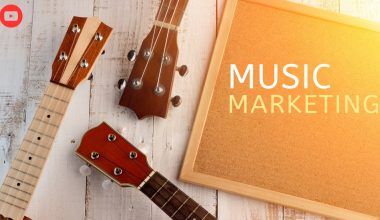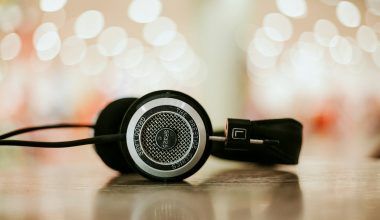Starting a music blog is a fantastic way to share your passion for music with the world. Whether you’re a musician, a music lover, or someone who wants to dive into the world of digital content, creating a music blog can be both fun and rewarding. In this comprehensive guide, we will walk you through how to create a music blog step by step, ensuring that your blog not only stands out but also attracts and retains a dedicated audience.
1. Define Your Niche
Before you start, it’s essential to identify your niche. The music industry is vast, and focusing on a specific area will help you attract a targeted audience. Your niche could be based on a genre (like indie rock, hip-hop, or classical), a region (local music scenes), or a type of content (music reviews, interviews, or industry news).
Why Niche Matters?
Choosing a niche helps in distinguishing your blog from countless others. It makes your blog a go-to resource for specific information, building a loyal audience that values your unique perspective.
Identifying your niche is the foundation of how to create a music blog that resonates with your audience. A well-defined niche helps you create focused content that appeals to a specific group of readers, making it easier to establish your blog as an authority in that area.
2. Choose a Memorable Blog Name
Your blog’s name is the first thing people will notice, so make it catchy and reflective of your niche. It should be easy to remember and spell. Ideally, the name should also be available as a domain.
When choosing a blog name, it’s important to consider how it aligns with your niche and the message you want to convey. A good blog name can set the tone for your entire brand and help you stand out in the crowded music blogging space.
Tip: Use a blog name generator if you’re stuck. Ensure the domain is available before finalizing the name.
3. Get Your Domain and Hosting
To create a music blog, you need a domain (your blog’s address on the internet) and hosting (where your blog’s files will be stored). Choose a reliable hosting service that offers good speed and customer support. Platforms like WordPress are popular for blogging due to their flexibility and ease of use.
How to Choose Hosting?
Look for hosting that offers:
- Fast loading times
- Reliable uptime
- Good customer service
- Affordable pricing
The choice of hosting can significantly impact the performance of your blog. A slow-loading blog can drive away visitors, no matter how good your content is. Therefore, selecting the right hosting provider is a critical step in how to create a music blog that performs well.
4. Set Up Your Blog Platform
Once you have your domain and hosting, it’s time to install your blogging platform. WordPress is a great choice because of its flexibility and the vast range of plugins available to enhance your blog.
Steps to Install WordPress:
- Log into your hosting account.
- Use the one-click WordPress installation option (most hosting services offer this).
- Follow the prompts to set up WordPress.
Setting up your blog platform is a crucial part of how to create a music blog. WordPress is highly recommended due to its user-friendly interface and the wide variety of customization options it offers, allowing you to tailor your blog to meet your specific needs.
5. Choose a Theme
Your blog’s design plays a crucial role in retaining visitors. Choose a theme that reflects your niche and is easy to navigate. WordPress offers many free and premium themes that are optimized for blogging.
Design Tips:
- Use a responsive theme that looks good on all devices.
- Ensure your theme is fast and doesn’t slow down your site.
- Choose colors and fonts that reflect your blog’s personality.
When learning how to create a music blog, selecting the right theme is crucial for setting the tone and user experience of your blog. The right theme will make your blog visually appealing and easy to navigate, helping retain visitors and encouraging them to explore more of your content.
6. Install Essential Plugins
Plugins extend the functionality of your WordPress blog. Here are some essential plugins you should consider installing:
- Yoast SEO: Helps optimize your blog for search engines.
- Akismet: Protects your blog from spam comments.
- Jetpack: Offers various features like site stats, security, and performance tools.
- WPForms: Allows you to create contact forms easily.
- Social Warfare: Enables social sharing to boost your blog’s visibility.
Installing the right plugins is an important aspect of how to create a music blog. These plugins help enhance your blog’s functionality, improve its SEO, and make it easier to manage and promote your content.
7. Create Important Pages
Before you start posting, set up the essential pages for your blog:
- About Page: Tell your readers who you are and what your blog is about.
- Contact Page: Provide a way for readers and brands to contact you.
- Privacy Policy: Explain how you handle user data (important for legal reasons).
- Disclaimer Page: Especially important if you plan to monetize your blog.
Setting up these pages is a critical step in how to create a music blog. These pages not only provide essential information to your visitors but also build trust and credibility, which are vital for growing a successful blog.
8. Start Writing Content
Content is king in blogging. Focus on creating high-quality, engaging posts that offer value to your readers. Here are some content ideas for your music blog:
- Album Reviews: Provide in-depth reviews of the latest albums.
- Artist Interviews: Share insights from conversations with musicians.
- Music News: Keep your readers updated with the latest happenings in the music world.
- How-to Guides: Teach your audience about music production, playing instruments, etc.
Content Writing Tips:
- Use a conversational tone to connect with your audience.
- Break your content into short paragraphs and use subheadings for easy reading.
- Include images and videos to make your posts more engaging.
Creating valuable content is at the heart of how to create a music blog. Your content should reflect your passion and expertise, providing readers with insights and information they can’t find elsewhere. Quality content will keep your readers coming back for more.
9. Optimize Your Content for SEO
Search Engine Optimization (SEO) is crucial for getting your blog noticed. By optimizing your posts, you increase the chances of them ranking higher in search engine results, driving more traffic to your blog.
SEO Tips:
- Include your focus keyword, how to create a music blog, in the title, headers, and throughout the post.
- Write a meta description that includes the focus keyword.
- Use internal linking to connect related posts within your blog.
- Optimize your images by using descriptive file names and alt text.
- Ensure your blog loads quickly and is mobile-friendly.
Optimizing your content for SEO is an ongoing process in how to create a music blog. Regularly updating your content, researching keywords, and following SEO best practices will help your blog rank higher in search results, leading to increased visibility and traffic.
10. Promote Your Blog
Creating great content is just the first step. You also need to promote your blog to reach a wider audience. Here are some strategies to get your blog noticed:
- Social Media: Share your posts on platforms like Twitter, Facebook, and Instagram.
- Email Marketing: Build an email list and send newsletters to keep your readers engaged.
- Guest Blogging: Write guest posts for other music blogs to build backlinks and gain exposure.
- Collaborations: Partner with other bloggers or musicians for joint content or promotions.
Promoting your blog is essential to how to create a music blog that attracts and retains an audience. Effective promotion ensures that your content reaches the right people, driving traffic and engagement to your blog.
11. Engage with Your Audience
Building a community around your blog is key to its success. Engage with your readers by replying to comments, asking for their opinions, and running polls or surveys.
Engagement Strategies:
- Respond to comments on your blog and social media.
- Host live Q&A sessions on social media.
- Encourage readers to share your posts.
12. Monetize Your Music Blog
Once your blog starts gaining traction, you can explore various ways to monetize it:
- Affiliate Marketing: Promote music-related products and earn a commission on sales.
- Sponsored Posts: Get paid to write posts promoting brands or products.
- Ad Networks: Join ad networks like Google AdSense to display ads on your blog.
- Sell Merchandise: Create and sell your own music-related products.
Monetizing is a critical part of how to create a music blog that can sustain itself financially. Explore different monetization methods to find what works best for your audience and blog style.
13. Keep Learning and Improving
The digital world is constantly evolving, so it’s important to keep learning and improving your blog. Stay updated with the latest trends in blogging, SEO, and social media to keep your blog relevant and successful.
Continuous Improvement Tips:
- Experiment with New Content Formats: As your blog evolves, try incorporating different content types like podcasts, video content, or even live streaming. These formats can help engage your audience in new ways and expand your reach.
- Use Analytics Tools: Tools like Google Analytics can provide valuable insights into your audience’s behavior. By understanding which posts are performing well and where your traffic is coming from, you can refine your content strategy for better results.
- Get Feedback from Your Readers: Regularly ask your audience for feedback on what they enjoy and what they’d like to see more of. This not only helps you improve your content but also strengthens the connection between you and your readers.
14. Stay Consistent and Patient
Success in blogging doesn’t happen overnight. It requires consistency, patience, and a lot of hard work. Keep posting regularly, engage with your audience, and don’t be discouraged by slow growth in the beginning. Over time, your efforts will pay off.
Consistency Tips:
- Create a Content Calendar: Planning your content in advance can help you maintain a regular posting schedule. A content calendar also allows you to balance different types of content, ensuring your blog stays fresh and varied.
- Batch Write Posts: Consider writing multiple posts at once during your most productive times. This approach can help you stay ahead of your publishing schedule and reduce the stress of last-minute writing.
- Set Realistic Goals: Whether it’s posting a certain number of times per week or reaching a specific traffic milestone, setting realistic goals can keep you motivated. Celebrate small wins to stay encouraged along the way.
Patience is crucial in how to create a music blog that lasts. Building an audience takes time, and it’s important not to get discouraged if your blog doesn’t become an overnight success. Stay focused on your goals, keep producing quality content, and trust that your hard work will eventually pay off.
15. Network with Other Bloggers and Musicians
Building relationships with other bloggers and musicians can open up new opportunities for your music blog. Networking can lead to collaborations, guest posts, and cross-promotions that help increase your blog’s visibility.
Networking Tips:
- Attend Industry Events: Whether online or in-person, music industry events can be a great way to meet like-minded individuals. These connections can lead to potential collaborations or partnerships.
- Join Online Communities: Participate in online forums and social media groups related to music blogging or your niche. Engaging with these communities can help you build your reputation and discover new ideas for your blog.
- Reach Out for Guest Posts: Don’t hesitate to contact other bloggers in your niche to offer guest posts or invite them to write for your blog. This exchange of content can benefit both parties by reaching new audiences.
Networking is a key part of how to create a music blog that grows organically. By forming connections with others in your industry, you not only gain new insights but also tap into their audiences, which can significantly boost your blog’s exposure.
16. Stay Updated with Music Trends
The music industry is ever-changing, and staying updated with the latest trends is vital to keeping your blog relevant. Whether it’s new music releases, shifts in genre popularity, or changes in the music business, staying informed allows you to create timely and relevant content.
How to Stay Updated:
- Follow Industry News: Regularly read music news websites, blogs, and magazines to stay on top of what’s happening in the industry.
- Subscribe to Music Newsletters: Many music-related websites offer newsletters that provide a summary of the latest news and trends. This can be a convenient way to stay informed.
- Listen to New Music Regularly: Make it a habit to explore new music regularly. Streaming platforms like Spotify and Apple Music offer curated playlists that can help you discover new artists and trends.
Incorporating current trends into your content is a powerful strategy in how to create a music blog that resonates with your audience. Timely content not only attracts readers but also positions your blog as a credible source of up-to-date information.
17. Incorporate Multimedia Content
Adding multimedia elements like images, videos, and podcasts can greatly enhance the appeal of your blog. Multimedia content can break up long text, make your posts more engaging, and cater to different audience preferences.
Multimedia Tips:
- Use High-Quality Images: Whenever possible, include high-quality images in your posts. This could be album covers, artist photos, or custom graphics. Ensure you have the right to use these images to avoid copyright issues.
- Embed Videos: If you’re discussing a specific song or performance, consider embedding a YouTube video or other media that readers can watch directly on your blog.
- Start a Podcast: If you’re comfortable with audio, consider starting a podcast as a supplement to your blog. This can help you reach a new audience who prefers listening over reading.
Incorporating multimedia is an essential part of how to create a music blog that is dynamic and engaging. By offering different types of content, you cater to a wider audience and keep your blog interesting and fresh.
18. Engage in Music Blogging Communities
Participating in music blogging communities can provide support, inspiration, and new ideas for your blog. These communities often share tips, offer feedback, and provide a platform for collaboration.
Community Engagement Tips:
- Join Music Blogger Groups on Social Media: There are many groups on Facebook, Reddit, and other platforms where music bloggers share advice and support each other.
- Participate in Blog Carnivals: Blog carnivals are events where bloggers in the same niche share their best content on a specific topic. Participating can increase your blog’s visibility and help you connect with other bloggers.
- Comment on Other Blogs: Engage with other music blogs by leaving thoughtful comments. This not only helps you build relationships but can also drive traffic back to your own blog.
Being part of a community is a valuable aspect of how to create a music blog that thrives. Communities provide a support network and a source of inspiration, helping you stay motivated and informed.
19. Analyze and Improve Your Blog’s Performance
Regularly analyzing your blog’s performance is essential for long-term success. By understanding what works and what doesn’t, you can make informed decisions that improve your blog’s effectiveness.
Performance Analysis Tips:
- Use Google Analytics: This free tool provides detailed insights into your blog’s traffic, including where visitors come from, what content they engage with, and how long they stay on your site.
- Track Your SEO Performance: Tools like Ahrefs or SEMrush can help you monitor your keyword rankings and identify opportunities for improvement.
- Conduct A/B Testing: Experiment with different headlines, images, or calls-to-action to see what resonates best with your audience.
Analyzing your blog’s performance is a crucial part of how to create a music blog that evolves and grows. By continuously refining your approach based on data, you can ensure your blog stays competitive and effective.
20. Plan for the Long Term
Creating a successful music blog is not a short-term project. It requires planning and a long-term vision. Whether you’re blogging as a hobby or with the goal of turning it into a full-time business, having a clear plan will guide your decisions and keep you focused.
Long-Term Planning Tips:
- Set Long-Term Goals: What do you want to achieve with your blog in the next year? In the next five years? Setting clear goals will help you measure your progress and stay motivated.
- Diversify Your Content: As your blog grows, consider expanding into different types of content, such as video reviews, podcasts, or even a YouTube channel. This diversification can help you reach new audiences.
- Build a Brand: Think about your blog as a brand. Consistency in tone, style, and content can help you build a recognizable and trustworthy brand in the music blogging space.
Planning for the future is an integral part of how to create a music blog that has staying power. By setting long-term goals and continuously evolving, you can ensure your blog remains relevant and successful for years to come.
Conclusion
Creating a music blog is a fulfilling journey that combines your love for music with digital creativity. By following these steps on how to create a music blog, you’ll be well on your way to building a platform that resonates with music lovers around the world. Remember, the key to a successful blog lies in providing valuable content, optimizing for SEO, and consistently engaging with your audience.
Whether you’re reviewing the latest hits, sharing industry insights, or showcasing your musical journey, your blog can become a go-to resource for music enthusiasts. So, take the plunge, start your blog today, and let your passion for music shine through every post.
With dedication and the right strategies, your music blog can grow into a successful platform that not only reflects your love for music but also connects with a global audience. Good luck on your journey in the world of music blogging!
For further reading, explore these related articles:
For additional resources on music marketing and distribution, visit Deliver My Tune.






